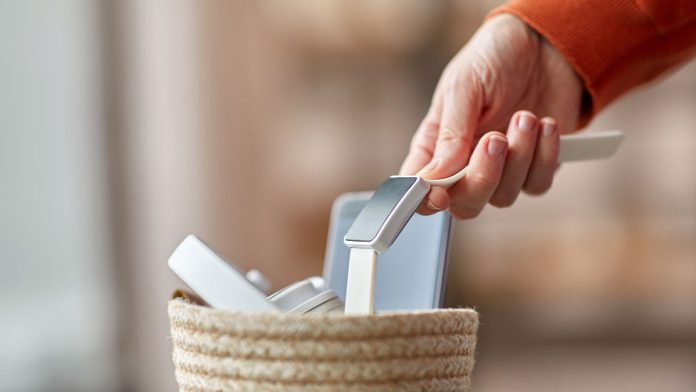In the present digital era, we are always linked to the online world. From social media scrolling to endless emails, our lives revolve around screens. Although technology has many positive effects, we should be aware of any potential threats to our mental health. The notion of a digital detox is outlined in this article, along with the necessity for balance in the internet era and how it might improve mental health.
The Digital Age: A Blessing and a Challenge
The Power of Technology at Our Fingertips
Technology has revolutionized our lives, enabling us to access information, connect with others, and accomplish tasks with ease.
The Flip Side: The Perils of Constant Connectivity
While being connected brings convenience, it also comes with challenges. The addictive nature of social media, information overload, and the erosion of genuine connections can take a toll on our mental well-being.
Unplugging for Mental Clarity: Understanding Digital Detox
What is a Digital Detox?
A digital detox involves intentionally taking a break from digital devices and online activities to recharge and regain balance in our lives.
Detoxing from Digital Devices
Detoxing from digital devices means consciously reducing screen time, limiting notifications, and creating designated tech-free zones to reclaim our time and attention.
Setting Realistic Boundaries
Establishing clear boundaries around technology usage helps us regain control over our digital lives. This includes defining device-free times, such as during meals or before bedtime, and setting limits on social media usage.
The Impact of Digital Detox on Mental Well-being
Reduced Anxiety and Stress Levels
Constant exposure to digital stimuli can lead to heightened anxiety and stress. Disconnecting allows our minds to unwind, reducing the burden of information overload and the pressure to constantly stay connected. You may speak with an anxiety or depression therapist if want to have professional help.
Improved Sleep Quality
The blue light emitted by screens disrupts our sleep patterns. By disconnecting from digital devices before bedtime, we promote better sleep quality, allowing our bodies and minds to recharge.
Enhanced Productivity and Focus
Digital distractions often hinder our ability to concentrate and complete tasks efficiently. Incorporating a Digital Detox into your routine provides us with uninterrupted time, allowing us to focus and be more productive in our work and personal endeavours.
Rebuilding Meaningful Connections
The constant allure of social media can overshadow real-life interactions. By stepping away from the digital world, we create space for meaningful face-to-face connections, strengthening relationships and fostering a sense of belonging.
Practical Tips for a Successful Digital Detox
Start Small and Gradually Increase
At first, one or two hours, and then gradually larger periods. With this step-by-step strategy, the transition is easier and there is a better likelihood of long-term success.
Engage in Offline Activities
Fill your time with offline activities you enjoy, such as reading a book, practising a hobby, or spending time in nature. drug treatment Engaging in these activities helps shift your focus away from screens and promotes a healthier balance.
Seek Support from Others
Embarking on a digital detox can be challenging, especially in a hyper-connected world. Seek support from family, friends, or online communities who share your goal of finding balance. Their encouragement and shared experiences can boost your motivation.
Maintaining Balance in the Digital Age
Practising Mindful Technology Use
After completing a digital detox, it’s important to maintain a mindful approach to technology use. Continuously reassess your relationship with digital devices, set boundaries, and prioritize quality offline experiences.
Incorporating Regular Digital Detoxes
Make digital detox a regular part of your lifestyle. Schedule periodic breaks from screens, whether it’s a weekly detox day or a weekend retreat. By consistently disconnecting, you cultivate a healthier relationship with technology and ensure long-term mental well-being.
Embracing Digital Minimalism
Embrace the philosophy of digital minimalism, which emphasizes the intentional and purposeful use of technology. Evaluate the digital tools and platforms you engage with and eliminate those that don’t add value to your life. Prioritize quality over quantity, and curate a digital environment that aligns with your goals and values.
Cultivating Healthy Digital Habits
Develop healthy digital habits that promote balance and well-being. Create a daily routine that includes dedicated time for self-care, physical activity, and offline activities. Set boundaries for technology use, such as avoiding screens during meals or designating specific times for checking emails and social media.
Mindful Social Media Consumption
When engaging with social media, practice mindfulness and intentionality. Unfollow accounts that contribute to negativity or comparison, and instead, follow accounts that inspire and uplift you. Use social media as a tool for connection and information, rather than mindless scrolling.
Designating Tech-Free Zones at Home
Create designated areas in your home where technology is not allowed. This could be the dining table, the bedroom, or a cosy reading nook. By having tech-free zones, you can establish boundaries and ensure that certain spaces remain sacred and free from digital distractions.
Exploring Offline Hobbies and Interests
Use the time you would typically spend on digital devices to explore new offline hobbies and interests. Whether it’s painting, cooking, playing an instrument, or practising yoga, engaging in these activities provides a sense of fulfilment and helps to break the cycle of constant screen time.
Practising Digital Decluttering
Just as physical clutter can cause stress and overwhelm, digital clutter can have a similar effect. Take time to declutter your digital life by organizing your files, deleting unnecessary apps and emails, and unsubscribing from newsletters that no longer serve you. A clean and organized digital space promotes mental clarity and reduces digital distractions.
Prioritizing Self-Care
Make self-care a priority in your daily life. Make time for activities that benefit your body, soul, and intellect. This can entail writing, doing yoga, having a soothing bath, or taking a walk in the woods. By prioritizing self-care, you replenish your energy and create a buffer against the stressors of the digital world.
Teaching Digital Well-being to Children
If you have children, it’s important to start educating them about digital well-being at a young age. Encourage them to engage in offline activities, limit screen time, and set healthy boundaries with technology. By instilling these habits early on, you help them develop a healthier relationship with technology and protect their mental well-being.
Remember, finding balance in the internet age is a continuous journey. It demands self-awareness, intentionality, and the capacity to sometimes detach from and reconnect with the outer world. You might be able to regain control over your mental health and live a more fulfilled life in the digital era by utilising these techniques and going through a digital detox.
The Power of Disconnecting for a Happier, Healthier Life
Rediscovering the Present Moment
By disconnecting from the digital world, we open ourselves to fully experiencing the present moment. We cultivate reflection, raise our level of awareness of our surroundings, and recognise the natural world’s beauty.
Nurturing Mental Health and Well-being
A digital detox allows us to recharge mentally, reducing stress, anxiety, and feelings of overwhelm. It allows for self-analysis, meditation, and personal development. Disconnecting also encourages a healthier work-life balance and fosters stronger relationships.
Unlocking Creativity and Inspiration
When we disconnect from constant digital stimulation, our minds are free to wander, imagine, and explore new ideas. Disconnecting nurtures creativity and allows us to tap into our inner resources, leading to innovative thinking and inspired solutions.
Conclusion
In the internet age, finding the balance between our digital lives and mental well-being is crucial. A digital detox offers a powerful antidote to the challenges posed by constant connectivity. By consciously disconnecting from digital devices, setting boundaries, and engaging in offline activities, we can reclaim our time, reduce stress, and nurture our mental health. Embracing regular digital detoxes and cultivating healthy digital habits will ultimately lead to a happier, healthier, and more fulfilling life in the digital age. So, take a step back, unplug, and embark on the journey of digital detox for a better and more balanced future.
Author Bio:
I am an enthusiastic writer who writes on mental health in the digital era and digital well-being. I wish to promote the discovery of offline activities, setting boundaries, and embracing frequent digital detoxes as crucial tools for a happier, healthier, and more meaningful existence in the internet era as a proponent of mindfulness and self-care. My work provides vital information for people trying to understand the complexity and prioritise their mental health by accessing professional psychological and counselling services, if needed, with a compassionate and all-encompassing approach.






